Mining gold, ruining rivers in Kalimantan
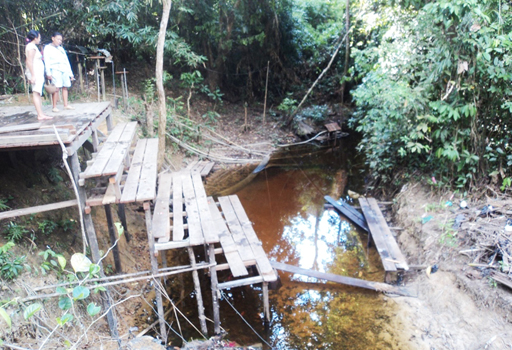
In the clear: Residents of Sungai Daka in front of one of the tributaries providing clean water for their village. Photo: Severianus Endi/Jakarta Post
KALIMANTAN: Wildcat miners searching for gold in the rivers lying deep in the heart of West Kalimantan are creating long-term chemical hazards that are threatening the water supply of nearby communities.
“Gold mining continues to increase, generally in river stream areas,” Hendrikus Adam, a campaign manager for the provincial office of the Indonesian Forum for the Environment (Wahli), said. “Rivers actually constitute an inseparable part of the life of local residents.”
According to Adam, unlicensed gold miners are making arrangements with “important persons” who determine if the wildcats can continue — or if the operation gets shut down.
“Equipment owners and workers from other areas are usually employed, while residents only become onlookers, with only a handful involved, Adam said. “Locals are thus more engaged in their daily activities such as tapping rubber sap, farming and gathering forest products.”
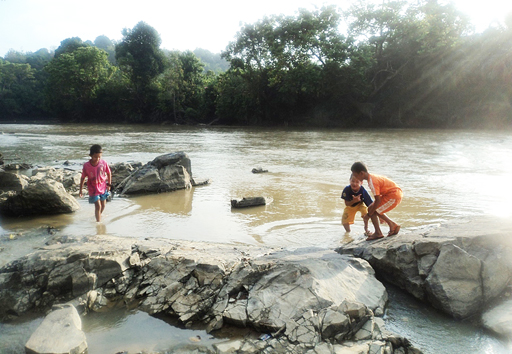
Free time: Children play on stones protruding from the bed of the Laur River. Photo: Severianus Endi/Jakarta Post
One such threatened site is Sungai Daka village in Ketapang regency, about 250 kilometers from the provincial capital, Pontianak.
The Laur River, which spans about 50 meters at its maximum, passes through the village. The stream bears traces of gold mining. Its water is muddy and brownish.
The people here say that unlicensed gold mining has been underway in the river’s upper reaches for more than four years, even reaching the edge of the village before it was halted. “The river’s water has never again been clear,” local resident Kacim, 46, says. “Actually, we used to drink this water.”
They have not given up though. Another local resident, Piyun, 35, said that the community searched for new sources of water, discovering several tributaries and springs in the forest behind their settlement.
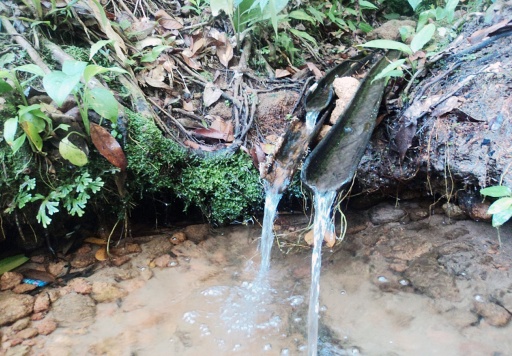
Pure: After wildcat mining fouled the Laur River, local residents searched for tributaries and springs such as this one to meet their daily needs.. Photo: Severianus Endi/Jakarta Post
The water is clear enough for drinking and cooking. The residents only use water from the Laur River for washing.
So another activity has been added to the villagers’ daily routine: mencauk — going together to with rattan baskets full of used plastic bottles to find clean water.
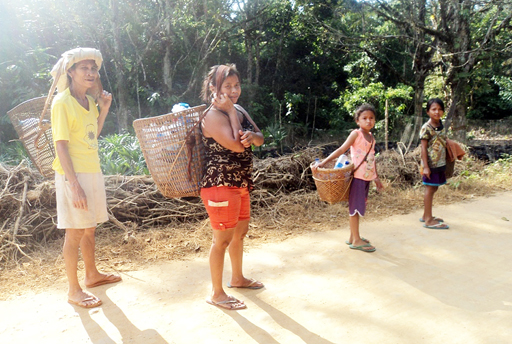
Water works: Another activity has been added to the villagers’ daily routine: mencauk – going together with rattan baskets full of used plastic bottles to find clean water. Photo: Severianus Endi/Jakarta Post
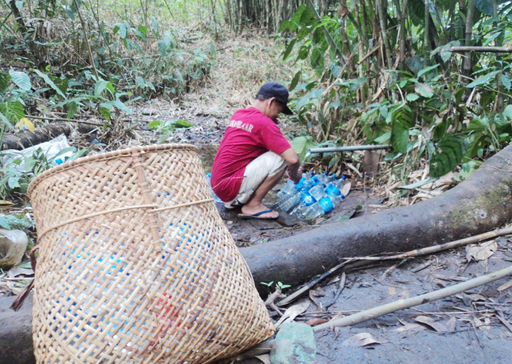
Topping off: A resident of Sungai Daka fills empty bottles with clean water from a spring. Photo: Severianus Endi/Jakarta Post
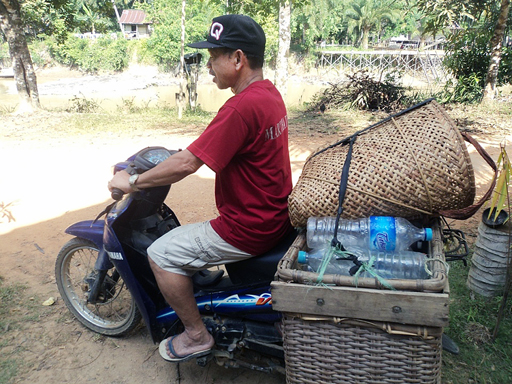
Speedy delivery: A resident of Sungai Daka delivers fresh water to his neighbors. Photo: Severianus Endi/Jakarta Post
“We’ve built rafts on the banks of tributaries and moved the water pumps previously placed on the shores of the Laur River,” Piyun said.
Toman, one of those formerly engaged in unlicensed mining, claimed that he had quit the business, which he said was not profitable. The 34-year-old currently works supplying basic sundries to his neighbours.
“There were times when I earned Rp 12 million (US$1,048) within a week, but we can’t always produce gold on a daily basis,” Toman said. “A big gain is sometimes followed by nothing later on.”
The minimum investment for a wildcat miner tops Rp 100 million, with about half earmarked for a boat with suction dredges and the remainder for hoses, fuel, operating costs, rent and contributions to the village treasury.
Gold mining typically begins with a survey of the area. When the potential to find gold is recorded in a certain spot, investors will negotiate with the residents who own the plots.
Although there’s no standard deal, owners typically receive 20 percent of the profits, workers get 30 percent, and the investor and the village treasury 50 percent.
Mining involves a dredge that raises sand from the river bed and another that sprays the sand to separate impurities from gold-bearing grains. With the aid of mercury, which is poisonous, the grains are amalgamated.
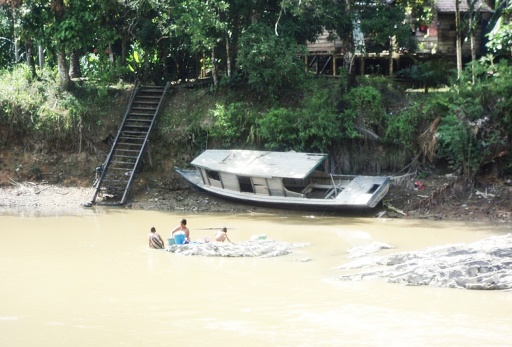
Fouled: Wildcat miners have dumped mercury used in the gold extraction process into the river, poisoning the water. Photo: Severianus Endi/Jakarta Post
Here contamination sets in, as the mercury is later dumped into the river.
Grains contain different grades of gold, which determine their prices. So-called pure gold, with a purity of 99.9 percent, costs about Rp 500,000 per gram.
The higher the grade is, the more reddish-yellow its appearance. Conversely, lower-grade gold is dull yellow and sells for less.
The wildcat miners face arrest by law-enforcement officials and dangerous working conditions due to a lack of standard security equipment.
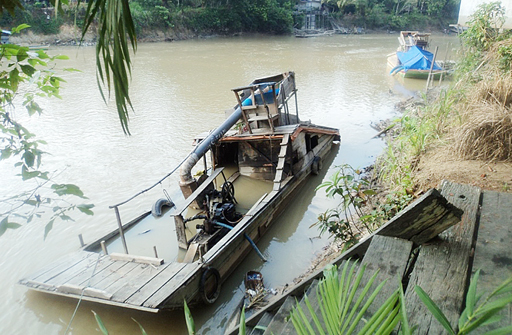
Abandon ship: Two vessels used by wildcat miners lie in disuse on the banks of the Laur River. Photo: Severianus Endi/Jakarta Post
The miners also search for gold in muddy soil on land, using methods that frequently results in mishaps when pits suddenly collapse on workers.
“The damage resulting from this activity is evident. The government and civil communities should feel an urgency to increase awareness about managing natural resources in a sustainable way and to uphold the law,” Adam stressed.
- The Jakarta Post








